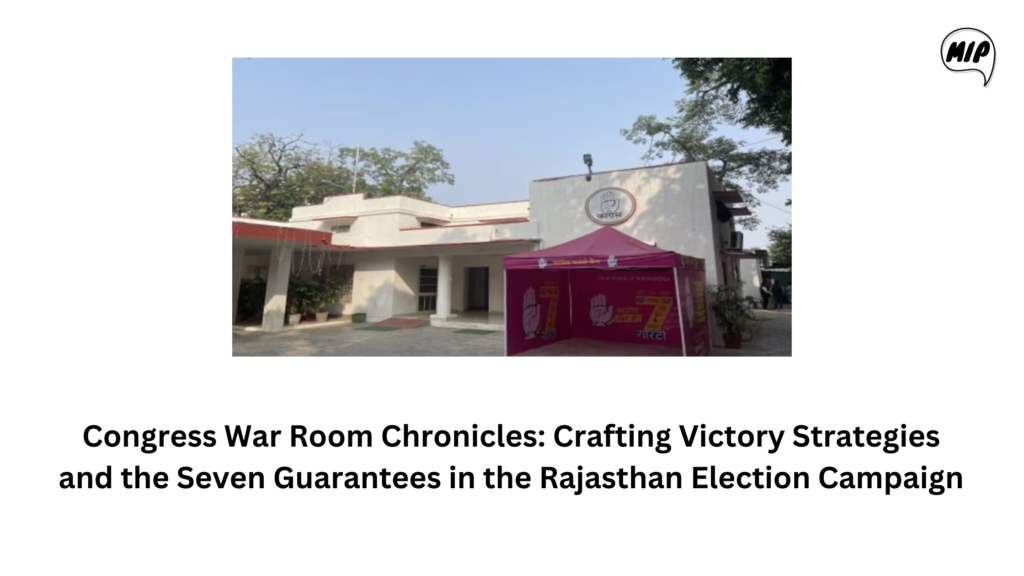
Heavily guarded by party workers who maintain strict vigilance over the entry and exit of people, the Congress’ central war room on Hospital Road in Jaipur serves as the hub where every strategy is devised to secure a majority in the polls in the desert state of Rajasthan on November 25.
Every night at 9 pm, the war room buzzes with activity as the state leadership connects with the party’s ground team – booth leaders, district presidents, mandal presidents, and candidates from across Rajasthan – to review the day’s progress with the central leaders.
Since the poll schedule was announced for Rajasthan, where the Congress hopes to win a second consecutive term based on its seven guarantees that form the basis of its campaign, connecting with grassroots-level teams has been the norm.
The seven promises are providing Rs 10,000 annually to the female head of the family, procuring cow dung at Rs 2 per kg, giving free laptops and tablets to first-year government college students, giving subsidized cooking gas cylinders at Rs 500 each to 10 million families, giving access to English-medium schools, implementing the old pension scheme, and offering free insurance cover of up to Rs 15 lakh for each family affected by natural disasters.
This time, the Congress has stepped up, meeting daily with state leaders, grassroots workers, and contenders to understand what is happening in every constituency,” said spokesperson Swarnim Chaturvedi, who is also in charge of the war room, adding that it’s a significant change—a fresh approach aimed at truly understanding the battleground.
It’s not every day, but these workers get to interact with party president Mallikarjun Kharge, general secretary KC Venugopal, special observer Mukul Wasnik, state chief minister Ashok Gehlot, party in-charge for the state Sukhjinder Singh Randhawa, and state president Govind Singh Dotasra.
During the interaction, innovative ideas are shared with party workers to reach out to people at the booth, block, and district levels. The party’s focus has been to garner support for health insurance, the old pension scheme, and subsidised cooking gas cylinders.
We all get connected via video conferencing. When central leaders such as the party’s president, general secretary, or CM of the state interact with workers, it boosts their morale and ensures better execution. Party has promised, but the bigger force lies with workers to make people understand,” said party leader Shubdesh Chouhan, a part of the war room team.
The war room connectivity is spread across 2,200 mandals, which cover 52,000 booths. On average, one mandal covers 20 booths, where workers focus mainly on identifying voters, updating the voter list, briefing the people about the party’s policy, and helping them to enroll for welfare schemes.
The party has engaged as many as 60 people who keep the war room equipped with data, and information on every seat and promote the party on social media.
It was the war room and its young enthusiasts who launched the slogan Aapke ghar, aapke dwar, 7 guarantees ke saath, aapka Ashok Gehlot (In your home, at your doorstep, with seven guarantees, your Ashok Gehlot), which helped the party to frame welfare schemes for the polls as the people had given a positive feedback.